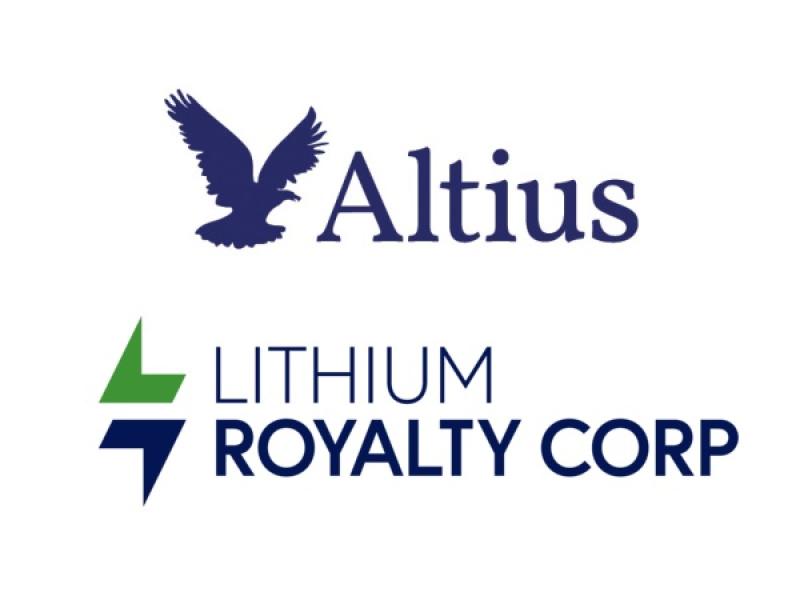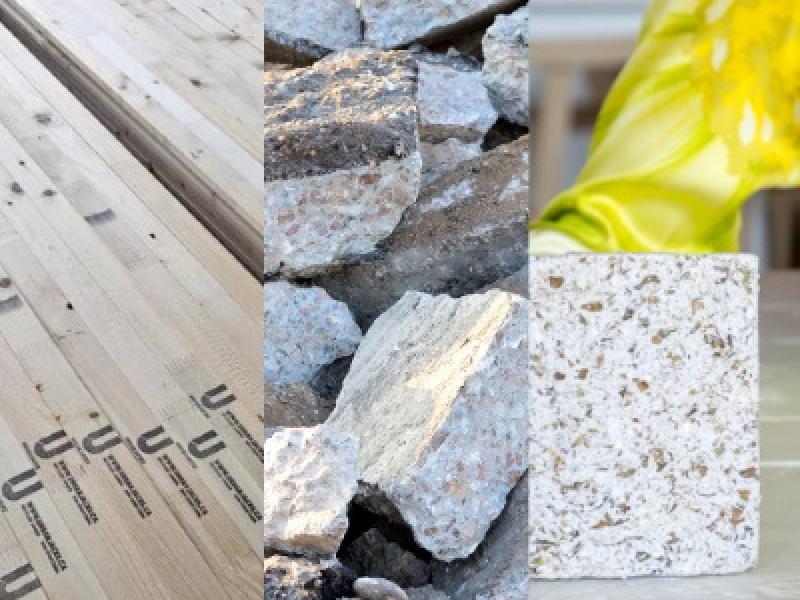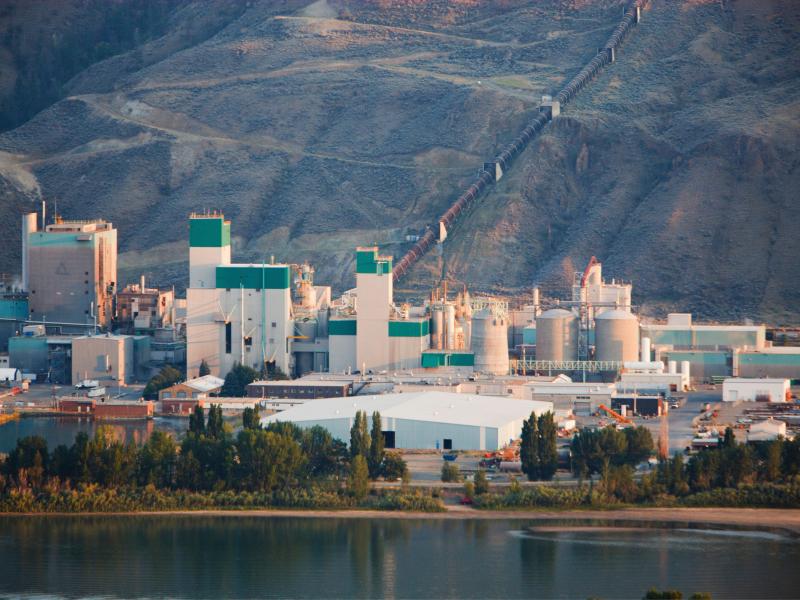Recent Articles
Colliers decarbonizes buildings with data, technology
Colliers decarbonizes buildings with data, technology
Colliers, one of the world’s leading institutional investment and property management firms, is actively engaged in transforming its properties into lean, green, low-emission machines for living and working.
GWL Realty Advisors wins two HOOPP LEAP Awards
An innovative rooftop garden and a portfolio-wide hazard and risk assessment helped earn GWL Realty Advisors Inc. two honours, Stakeholder Engagement and Climate Leadership Innovator, at the 2022 HOOPP LEAP Awards.
Fuel-switching challenges expected to ease
Climate, cost and capacity pose fuel-switching challenges for building owners looking to curb greenhouse gas emissions in line with Canada’s target for a 40 per cent reduction below 2005 levels by 2030, said industry panelists at a Canada Green Building Council conference.
B.C. releases long-awaited climate adaptation plan
• Globe and Mail • Western Investor
British Columbia has released its long-awaited climate adaptation strategy, promising half a billion dollars to protect communities from extreme natural disasters, though critics say the province can’t be measured on its progress without specific targets or goals.
B.C. building code changes consider extreme heat
• CBC
The B.C. coroner’s report into the deaths of 619 people last summer related to extreme heat laid clear the reality of how much the climate has changed in Canada— and how ill-prepared our homes and residences are for absorbing high temperatures.
Victoria makes builders pay for demolition material
In a new Victoria, B.C. bylaw, applicants will pay a fee of $19,500 for a demolition permit. If they salvage at least 40 kilograms of wood per above-ground square metre of floor area during deconstruction, the fee is refunded.
Vanc. bylaw requires wood be salvaged in demolitions
• CBC
Starting in 2023, demolishing a home built before 1950 in the District of North Vancouver will require that tonnes of wood be salvaged, the equivalent to 3.5 kilograms of wood for each square foot torn down, in accordance with a new municipal bylaw.
Feds launch first phase of Greener Home Loan program
Ottawa has launched the first phase of its plan to offer interest-free loans of up to $40,000 per household to Canadians planning upgrades that will have a significant impact in reducing their home’s environmental footprint.
Ontario rapidly losing farmland due to urban sprawl
• CBC
The Ontario Federation of Agriculture called on municipal governments and province to protect farmland when planning new housing developments. Data from the 2021 Census of Agriculture shows Ontario is losing 319 acres of farmland daily, equivalent to one family farm.
Real estate industry turning its focus more to ESG
Real estate managers no longer consider ESG a matter of changing lightbulbs and installing low-flow toilets in their buildings, but are now weighing a lot more effects that environmental, social and governance factors have on returns.
ESG greenwashing claims have ‘some legitimacy’
Recent criticisms of ESG investing practices, combined with global regulators’ efforts to begin cracking down on bad actors and establish more consistent standards, are evidence of a maturing industry, according to a panel of experts.
Miners spurred to innovate amid ESG push
• Mining
Mines of the future will need software developers, data analysts and even bio-technology scientists to be able to meet the rising of demand of metals, needed for decarbonization, in an environmentally friendly way, said Teck Resources.
RECs or green microgrids for ESG goals?
• Microgrid Knowledge • Nature
With the value of renewable energy certificates (RECs) being challenged, green microgrids and on-site energy are being eyed as a better way to achieve not only sustainability goals but also resilience, according to a study from Canadian and British researchers.
Sask.’s largest wind farm opens near Assiniboia
• CBC
Saskatchewan’s largest wind farm opened near Assiniboia. Fifty turbines, an underground electrical collection system and a transformer substation were constructed as part of the $340 million Golden South Wind Energy project.
Regina builds giant battery toward net-zero goal
• CBC
Regina will soon be home to one big battery. A SaskPower battery energy storage system has been green lit for construction in the city’s northeast corner — a project the utility hopes will help it power homes in a more environmentally friendly way.
Why Canada can meet its oil and gas emissions targets
OPINION: A confidential federal analysis recently shed doubt on whether the oil and gas sector can reduce greenhouse-gas emissions to the levels set out in Canada’s Emissions Reduction Plan, asking whether the climate goals are too ambitious.
Partnerships can deepen energy access for supply chains
• GreenBiz
Recent global studies predict demand increases of up to 10 times current production levels for minerals like cobalt, graphite and lithium. No matter the mix of alternate energy sources, the mining sector will be a player in years to come.
Countdown to single-use plastics ban in Canada begins
Environment Minister Steven Guilbeault says Canada will ban companies from importing or making plastic bags and Styrofoam takeout containers by the end of this year, their sale by the end of next year and their export by the end of 2025.
A closer look at P&G’s ‘water positive’ pledge
• GreenBiz
Consumer products powerhouse Procter & Gamble stepped forward in mid-June as the latest company — alongside the likes of Google, Meta, Microsoft and PepsiCo — to embrace a “water positive” future by 2030.
Canada closer to home for radioactive waste
Canada has moved one step closer to finding a permanent spot to store the millions of bundles of radioactive waste that have been generated in the nearly half-century since it started producing nuclear energy.
 Industry Events
Industry Events
-
ECO IMPACT 2026
Feb 19 2026
to Feb 20 2026
The Westin Calgary
-
BuildGreen Atlantic
Apr 27 2026
to Apr 28 2026
Halifax, NS
-
The Evergreen Conference
May 06 2026
to May 07 2026
Toronto, ON
-
Building Lasting Change
Jun 17 2026
to Jun 19 2026
Montréal, QC
-
Retrofit Canada Conference
Jun 24 2026
to Jun 25 2026
Halifax Convention Center











